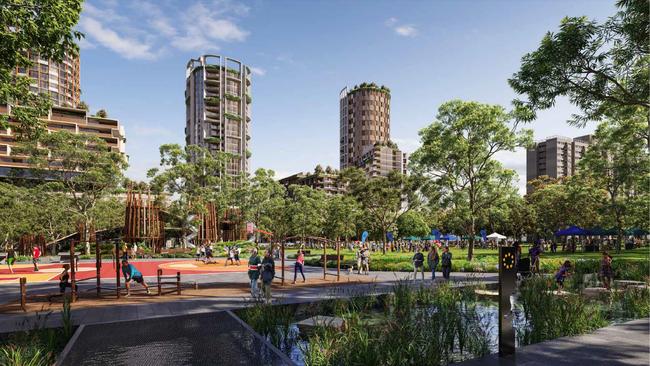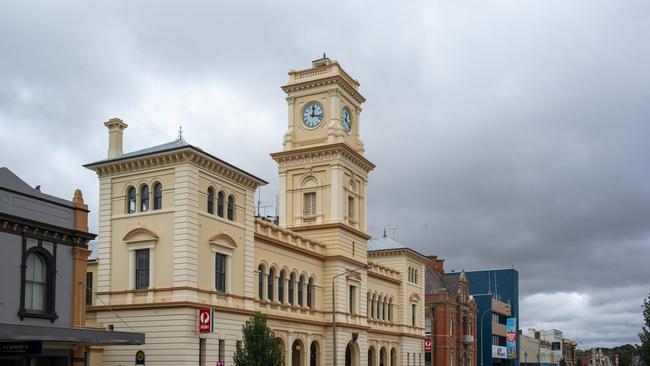New cities, not development fights, could help solve our housing nightmare
Instead of fighting over new builds in established suburbs, perhaps it is time to reassess what we’ve done in the past and what is suitable for the future, writes David Elliott.

Opinion
Don't miss out on the headlines from Opinion. Followed categories will be added to My News.
It was the great British Prime Minister Winston Churchill who once said, “plans are of little importance, but planning is essential.”
At the time he couldn’t have predicted the devastation a lack of planning would cause the citizens of NSW in 2025.
For the second half of the current parliament you can expect the planning minister to be front and centre of public discourse, and it’s going to be a bumpy ride.
With the opposition now committed to work with the Minns Government so it can achieve what no parliament has been able to do in nearly a half a century and fix our planning system, the pressure is on the government to declutter legislative obstacles to building a home and therefore make housing more affordable to our growing population.
Even with bipartisan support, and noting that the Minns Government is more than a bit sceptical about the offer, the parliament is only one stakeholder in this reform.

Take it from a former local member that nothing, and I mean nothing, engages the average voter more than an unwelcomed Development Application.
It doesn’t matter if it’s a carport or a nuclear reactor, if you want to unite a community all you need to do is mention development.

Throw in a couple of articulate local councillors and a community Facebook page and all the political goodwill in the world will evaporate.
The political risks are huge, particularly for a minority government relying on the support of some pretty entrenched independents all looking to expand their influence in getting legislative outcomes.
So maybe it’s time we looked outside the box. Instead of destroying the character of some of our favourite suburbs and forcing our poor local MPs into the valley of the shadow of political death is it time to reassess what we’ve done in the past and what is suitable for the future?
We didn’t need a pandemic to know that the structure of the workplace was radically changing. Working outside the traditional hours of nine to five was becoming commonplace and the digital age meant that some of us actually get more done on the commute to work than we do juggling the daytime schedule.
Mix this with the hybrid working week and the fact that with nearly a third of the population on shifts, or FIFOs, the need to work from home will become a growing consideration for the next generation of employees.

So that leads us back to planning and the bizarre reality that this young state hasn’t built a new city in more than a century.
That’s right, from the arrival of the First Fleet in 1788 we planned and built, to varying levels of success, Sydney and Parramatta, Newcastle (1804), Port Macquarie (1821), Tamworth (1840s) with Dubbo and Wagga Wagga both being gazetted in 1849.
In its first 60 years the young Colony could muster up the vision to literally plan hundreds of towns across this vast brown land and thereby attract pioneers, inventors, industrialists, pastoralists and families who developed great wealth and a sense of community.
By contrast, let’s list the cities we have planned in the last 60 years. Crickets.
When did we lose that pioneering spirit? More pertinent is the question as to why they can build brand new cities in Saudi, India and Malaysia, where suitable land may not be as readily available, but we can’t in NSW?
Given the declining need for people to be physically located in any given workplace, and general support for fast and reliable rail services surely it’s time to allow our development engineers the opportunity to survey our first brand new city in a century which, like our colonial towns before, would be built purposefully and with the needs of modern life front of mind.
Which young couple wouldn’t be happy to commute on a Very Fast Train three hours a day four times per week if it means they can afford a decent place to live and raise a family?
When Churchill was reflecting on the need to plan he was no doubt referring to the military obligations facing the allied forces, but modern law makers know that the political consequences remain the same regardless of the situation.
Building sustainable and desirable communities is the base obligation of any Government.
But is it worth altering what we already have when we can so easily draw on the inspiration of our colonial ancestors and pick up where they left off more than a century ago?
David Elliott is the Chief Executive of the Institute of Public Works Engineering and a former Liberal Minister.




